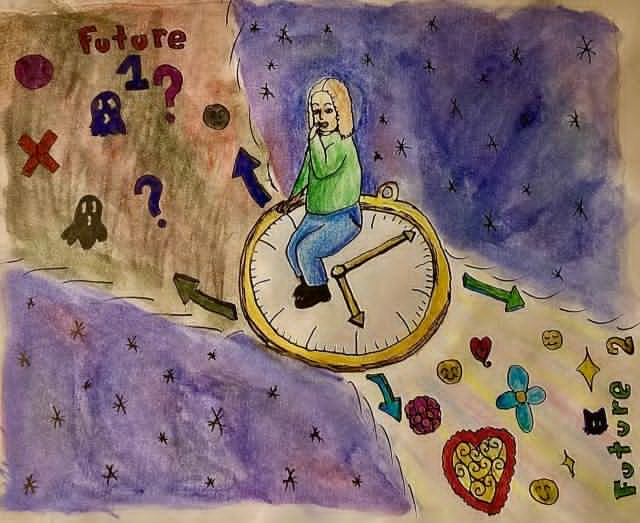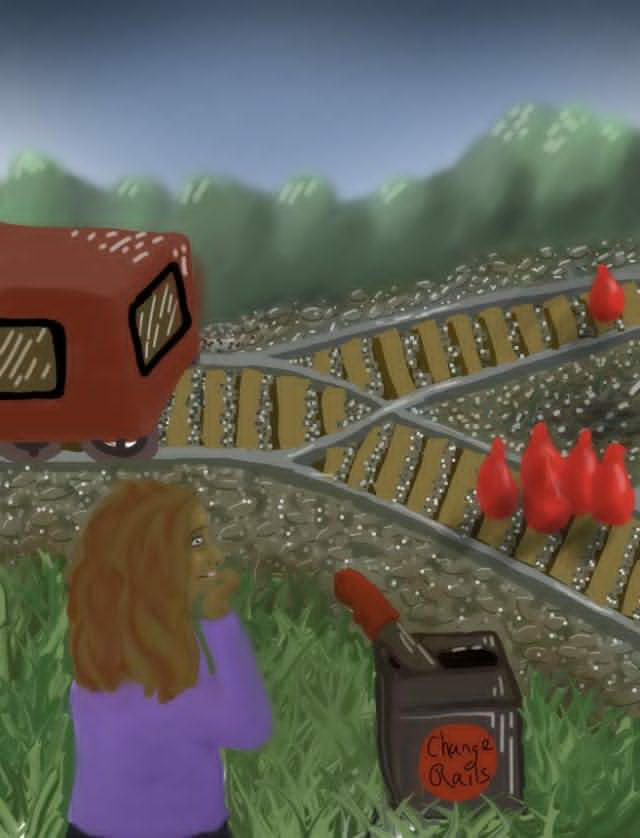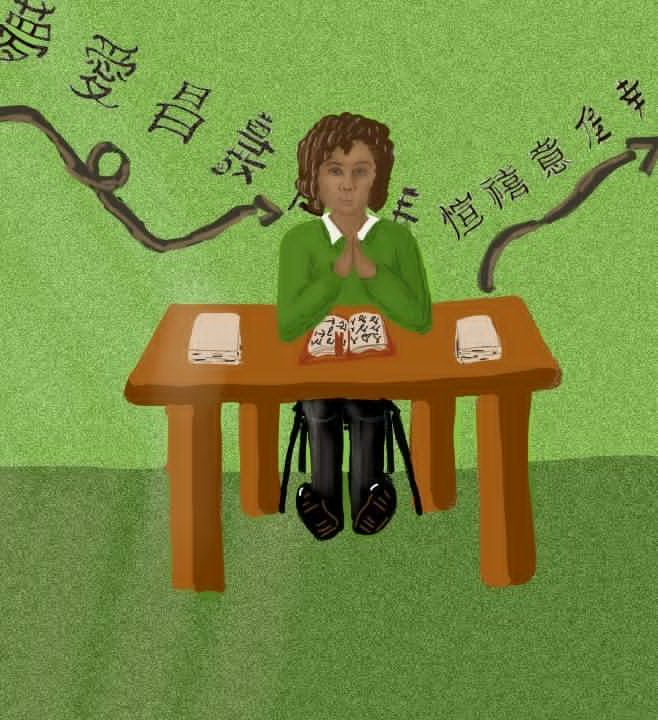A thought experiment is a made-up scenario employed frequently by people who are far too invested in physics and confusing ethical dilemmas, (i.e. me) in order to make other people invested in them as well. Typically they involve a description of an unlikely situation (like someone replacing every part of their ship one by one) designed specifically to change your perspective about an idea.
A paradox is a theoretical scenario because if it happened, the universe would probably explode. Usually, they follow the format ‘if A then B, then, if B then C… but if C, A couldn’t happen!’
There’s a lot of crossover between the two. Most thought experiments related to quantum mechanics are paradoxical by nature, just because we don’t understand what’s going on at an atomic level. Many paradoxes also begin as thought experiments, or at least require a healthy imagination to understand.

We begin the thought experiment descriptions with the infamous Schrodinger's Cat. Please do note that this is a THOUGHT experiment only!
Say you have a sealed box containing a bottle of poison, a mechanism that could smash the bottle, and a source of radiation. If the smashing mechanism detects the radiation decaying (which is certain to happen at some point… but exactly when who knows), it will smash the poison bottle, killing anything in its vicinity. In this box (yes, it’s a really big box) there is also a live cat. If you leave the box alone for a while, Schrodinger hypothesised, the cat is both alive and dead until you open the box and observe it.
Non-thought experiments have proven that this does happen with subatomic particles- they aren’t in a fixed state until we observe them. However, in this experiment the cat is the observer of its own state- it most certainly knows whether or not it's alive at any given time.
A thought experiment with even more possible death in it (philosophers are such a cheery bunch) is the trolley problem. Imagine you are standing beside a train track, and a train with no brakes is barreling down it. A bit further down, five people are tied to the tracks right in the train’s path. However, just before them is an offshoot track and a lever you could pull to divert the train onto it, away from the five people. But… one person is tied to this track. No, you can’t jump in front of the train yourself to stop it, it has too much momentum, and no, there isn’t enough time to untie any of them. Do you pull the lever and take an active part in that one person dying, but save the five on the other track, or do nothing and allow fate to take the route it was going to anyway?
 An interesting variation is the doctor problem, with the same overall five-or-one spared question, but in an even less ethical way. Say you’re a doctor and five people come in requiring life-saving transplants (Eg one needs a heart, one a lung, and so on, or they will die by the end of the day). However, you don’t have any organs to give them. Then a healthy person walks in for a check-up… maybe you can see where this is going. Do you kill the healthy person and use their organs to save the five, or allow fate to take the route it was going to regardless of you being there?
An interesting variation is the doctor problem, with the same overall five-or-one spared question, but in an even less ethical way. Say you’re a doctor and five people come in requiring life-saving transplants (Eg one needs a heart, one a lung, and so on, or they will die by the end of the day). However, you don’t have any organs to give them. Then a healthy person walks in for a check-up… maybe you can see where this is going. Do you kill the healthy person and use their organs to save the five, or allow fate to take the route it was going to regardless of you being there?
Interestingly, most people who voted for pulling the lever did not think you should kill the healthy person, despite it being a very similar dilemma. The most common reason given is that the person tied to the offshoot track was already involved in the situation (and could have died naturally later of starvation, as they were tied to train tracks), while the healthy person was an outsider. Also, the five people being saved on the tracks didn’t rely on another’s death, just the train being diverted, while the doctor always has to kill a person to save the five transplantees.
There’s less murder in The Chinese Book. Imagine a person living in a closed-off room, who doesn’t speak Chinese. They do however have a book full of Chinese phrases and the answers to those phrases (Eg the Chinese word for hello, with an arrow leading to the Chinese phrase for hi, how are you- but no English definitions). Someone outside the room passes them a note in Chinese, and they use this book to write the correct response. Does the person now understand Chinese?
Of course not. But this highlights a problem with AI- how would we know if it understands what it’s saying, or is just following an algorithm to give the correct response?
Now for some paradoxes! The most famous one is the grandfather paradox, one of many based on the absolute lunacy that is time travel.
You just invented the first time machine (well done by the way) and decided to go visit your grandparents, a couple of years before your parents were born. But oh no! Your time machine lands on your grandfather, Wizard of Oz style, and he dies before creating your parents. That means you were never born either- but how did you travel back and kill him if you were never born? True, your grandmother could remarry, but their children would have completely different genetics, so whoever built the time machine would still never be born.
The bootstrap paradox is another time-travel problem, named paradoxically itself, as no bootstraps are involved. Imagine buying Hamlet from a bookshop in the present day, then going back to Shakespeare’s time and telling him to publish it as his own play. He does, it’s successful, many copies of the script are published, and eventually one ends up in a modern-day bookshop. That’s the copy you then buy and take back in time. The question is- who wrote the book in the first place? Physics claims that information cannot be created or destroyed, but Hamlet seemingly just popped out of nowhere.
The Ship of Theseus. Say you have a ship, and over time, replace all the parts that have stopped working or rotted with identical, but new parts. Eventually, every component of the ship has been replaced, but you still call it the ‘Ship of Theseus’ and it looks the same (if less fall-apart-y). Is it still the same ship? If not, at what point did it change- with the first replacement, the last one, or something else? The sorites paradox is similar- if you have a heap of sand and remove one grain at a time, eventually you are left with a single grain, which is not a heap. So is two grains a heap? Three? When did the heap of sand cease to exist?
There are hundreds more, both general and specific, some full of death and some full of sand. There are links to articles about them at the bottom of the page. Meanwhile, though, just think about this for a while.
“This sentence is false”.
Have fun!
